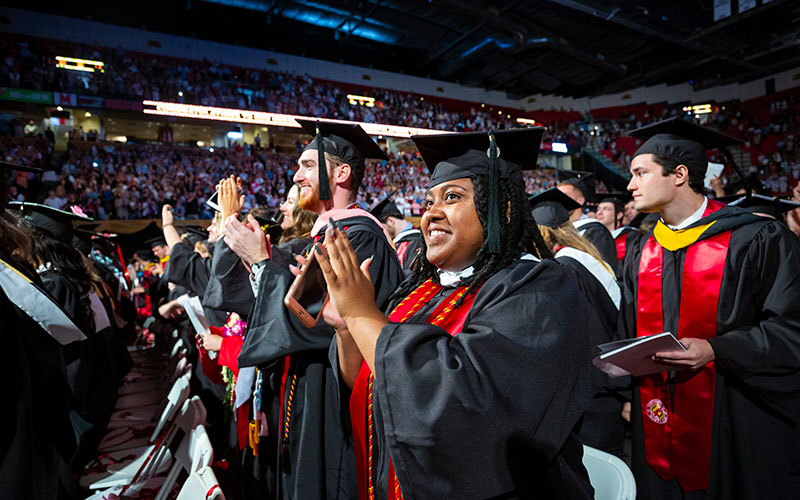Absolutely. We encourage students to participate in the University of Maryland’s living and learning communities. Many of our students are members of living and learning communities while also taking part in many other activities such as competitions, clubs, societies, internships, and study abroad.
You can submit your Flexus/Virtus application before committing to the university. Visit Flexus and Virtus engineering living-learning programs to learn more about these living and learning communities open to incoming first-year engineering students, including the application process and deadlines.
While it is possible to participate in both Flexus/Virtus and another living and learning program (LLP), living in Easton Hall during your first year with the Flexus/Virtus community is a requirement to participate in the program(s)*. If you desire to participate in both programs, you may, as long as the other program does not also require you to live there.
*Students accepted into Flexus/Virtus are required to live on campus during their first year. However, waivers can be requested to accommodate a variety of circumstances, for example, students commuting to campus from home or needing special housing arrangements.
If you participate in Flexus/Virtus, you will be assigned to Easton Hall and placed with a roommate who is also a participant in the program. Requests for roommates outside of Flexus/Virtus can be made. Please keep in mind that roommate requests cannot be guaranteed. The Department of Residence Life manages all roommate requests and inquiries should be directed to the Department of Residence Life at reslife@umd.edu.
Yes! WIE events, programs, and opportunities are open to all engineering students.
